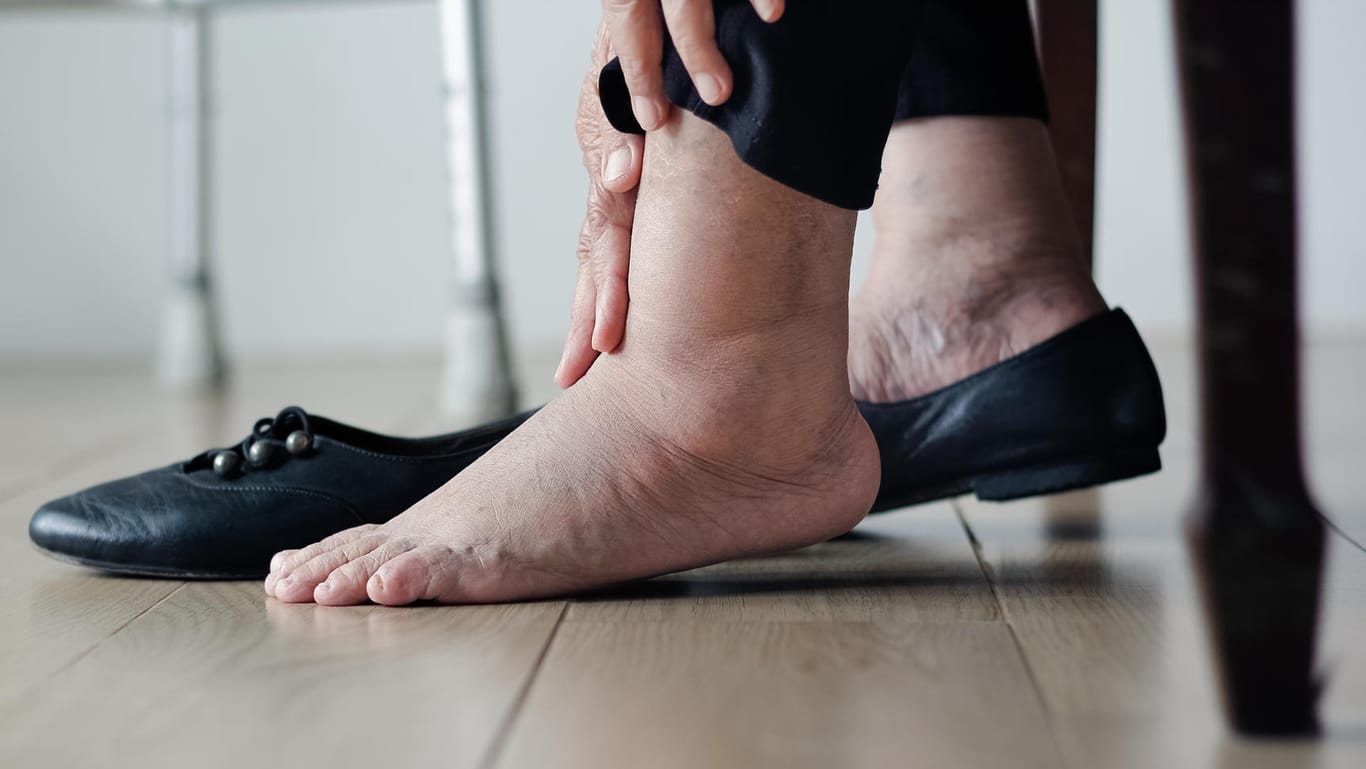
Swelling in the ankle is often harmless, but can also indicate illness. Which causes are possible and how you can relieve symptoms.Swollen ankles and feet affect many people. Most of the time they don’t have a bad background. Swollen ankles are often caused by too little exercise in everyday life, for example after standing or sitting for long periods of time. This also happens pretty quickly in warm weather or uncomfortable shoes.
What can be behind swollen ankles
Injuries or inflammation
Injuries (often sprains or fractures) and inflammation can cause the vessel walls to become more permeable. This makes it easier for water to build up in the surrounding tissue and the ankles swell.
Chronic overload
Being very overweight (obesity) or strenuous physical activity can impair the flow of blood back to the heart – and the blood builds up. In addition, the excess fat cells in the body cause more water to leak into the surrounding tissue. The lymphatic system is then overloaded and cannot remove the fluid.
Pregnancy and other hormonal changes
Hormonal changes such as pregnancy often cause swollen and painful legs and feet. The reason for this is that the body stores more fluid and this passes from the vessels into the surrounding tissue.
Blood clots
If you notice that only one ankle is swollen, this could be a sign of a blood clot blocking the veins. Accompanying symptoms usually include pain, a slight fever and a change in the color of the skin. In such a case, you should contact a doctor immediately.
Heart disease
In some cases, swollen feet are a side effect of a serious illness. If there is swelling on both sides of the ankle, chronic heart failure can be present – more precisely, so-called right heart failure.
Kidney or liver diseases, such as advanced liver cirrhosis, can also cause the legs and feet to swell.
Medication
Some medications can cause swollen ankles as a side effect. These include, for example:
- antidepressants,
- medicines for high blood pressure,
- cortisone and
- Anti-inflammatories.

Foot pain (symbolic image): Putting your feet up helps you relax and improves blood circulation. (Source: m-gucci/getty-images-bilder) When should I see a doctor?
If your feet keep swollen or if you have other symptoms such as fever or shortness of breath , you should see a doctor. They can clarify the cause and know which treatment is right for you. Even if you suspect that your swollen feet are due to taking a medication: Talk to your doctor.
If your ankles are swollen simply from standing for long periods of time or from high temperatures, you can resort to simple home remedies. In general, it is always a good idea to put your feet up and drink dehydrating teas. The following measures are also advisable for swollen ankles:
- Cooling: Cold causes the blood vessels to contract, which in turn promotes the return of blood from the legs. For example, a foot bath with soothing ingredients is helpful.
- Quark wraps: Quark wraps also provide soothing cooling for swollen ankles.
- Compression stockings: Wear support stockings as a preventive measure, especially if you suffer from venous insufficiency.
- Lymphatic drainage: Lymphatic drainage is a special type of medical massage. It supports the drainage of fluid from the tissue.
If the symptoms do not improve despite these measures, consult a doctor.
